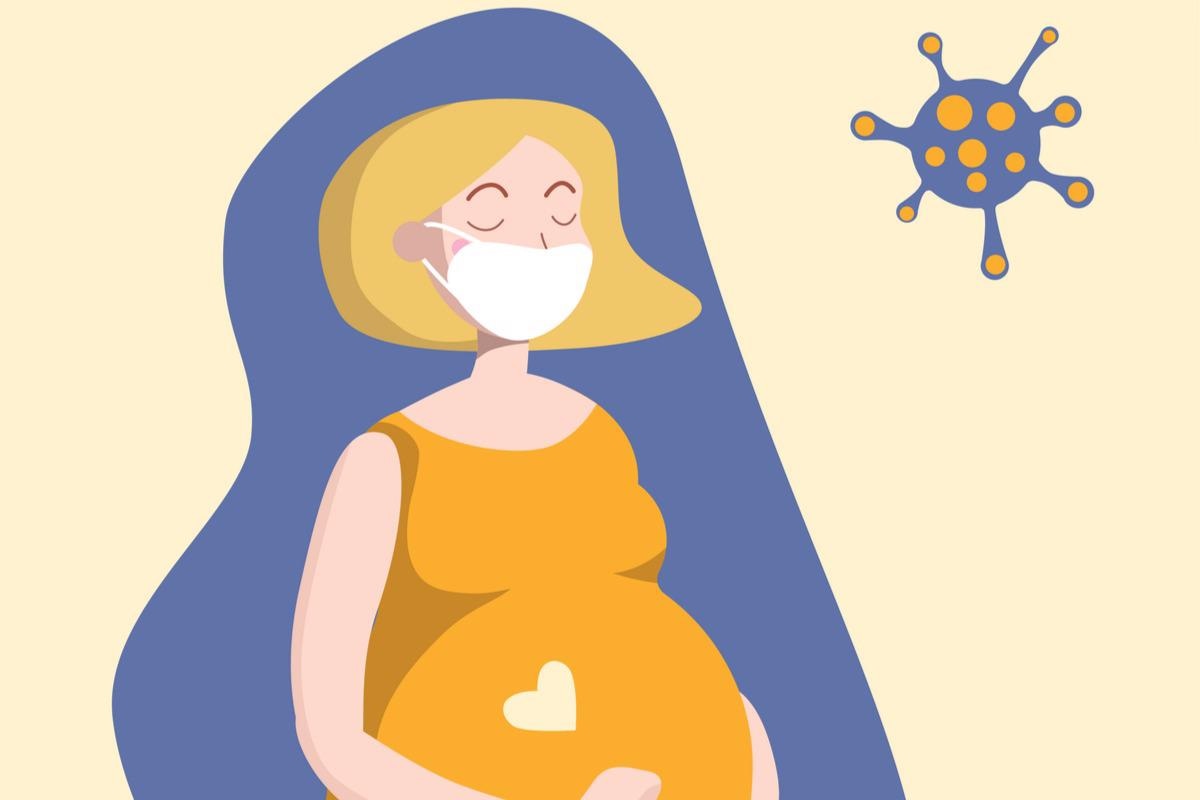A recent study posted to the medRxiv* preprint server evaluated maternal antibody responses against severe acute respiratory syndrome coronavirus-2 (SARS-CoV-2) and transplacental transfer.
 Study: Maternal Antibody Response and Transplacental Transfer Following SARS-CoV-2 Infection or Vaccination in Pregnancy. Image Credit: Margarita Fink/Shutterstock
Study: Maternal Antibody Response and Transplacental Transfer Following SARS-CoV-2 Infection or Vaccination in Pregnancy. Image Credit: Margarita Fink/Shutterstock

 This news article was a review of a preliminary scientific report that had not undergone peer-review at the time of publication. Since its initial publication, the scientific report has now been peer reviewed and accepted for publication in a Scientific Journal. Links to the preliminary and peer-reviewed reports are available in the Sources section at the bottom of this article. View Sources
This news article was a review of a preliminary scientific report that had not undergone peer-review at the time of publication. Since its initial publication, the scientific report has now been peer reviewed and accepted for publication in a Scientific Journal. Links to the preliminary and peer-reviewed reports are available in the Sources section at the bottom of this article. View Sources
Background
Growing evidence suggests that pregnant women are at an increased risk of severe coronavirus disease 2019 (COVID-19), requiring hospitalization, intensive care, and mechanical ventilation. Moreover, studies have observed a higher risk of preterm birth, stillbirth, and preeclampsia due to COVID-19 infection during pregnancy.
SARS-CoV-2 vaccines have been available for use among the pregnant population since the start of vaccination, although pregnant individuals were not included in the phase III vaccine trials. Nonetheless, growing literature and data showed the safety and efficacy of vaccines among pregnant subjects. Antibody responses in pregnant individuals following natural infection with SARS-CoV-2 or vaccination have been studied. While in non-pregnant adults, the severity of COVID-19 is associated with the antibody levels in circulation, which wane after peaking initially, but little is known about pregnancy-specific antibody kinetics following COVID-19 infection.
Transplacental transfer of antibodies from a pregnant woman post-vaccination or -infection protects the neonate, and this is also observed in the case of SARS-CoV-2 with varying transfer ratios. According to a few reports, two mRNA vaccine doses instead of one and immunizing early in the pregnancy were associated with high transfer ratios.
The study
The present study assessed maternal IgG and IgM antibodies against the SARS-CoV-2 spike protein’s receptor-binding domain in pregnant individuals and cord blood (infant hereafter). The vaccine- or infection-induced antibody responses were evaluated at the time of delivery; specifically, the relationship between disease severity and infant and maternal antibody levels was investigated.
The study participants were those who delivered at the Northwestern Medicine Prentice Women’s hospital in Chicago between April 2020 and July 2021. COVID-19 infection or vaccination during pregnancy was ascertained by reviewing their electronic medical records. The timing of infection was determined by the gestational age of COVID-19 diagnosis using due dates as estimated clinically. Asymptomatic cases were excluded from the study because the exact timing of their COVID-19 diagnosis could not be determined.
The timing of vaccination was determined by the gestational age when receiving the first dose. Those immunized and infected during pregnancy were not included in the study. Latency was defined as the time between an event (vaccination or infection) and delivery. IgG and IgM antibodies against SARS-CoV-2 were assayed using SARS-CoV-2 IgG and IgM antibody tests. The transfer ratio was quantified as the ratio of infant IgG levels to maternal IgG levels.
Findings
About 351 pregnant individuals and 357 infants were studied. Among the pregnant population, 99 individuals were vaccinated during pregnancy, and the remaining were diagnosed with COVID-19. Only five subjects developed severe or critical COVID-19 disease; 56% developed mild disease, 13% moderate, and 26% were asymptomatic. Most pregnant people infected during the first or second trimester were symptomatic. Around 162 people were diagnosed with COVID-19 in their third trimester; 65% of cases were symptomatic. The researchers observed no significant latency between infection and delivery based on disease severity. 63% of pregnant women with prior COVID-19 were positive for IgG antibodies at delivery. Infant IgG levels after maternal infection were positive among 58% of subjects. Higher maternal and infant IgG levels were observed in severe COVID-19 patients. The median IgG transfer ratio was 0.87 – 1.2.
The authors observed significant differences in maternal age, parity, asthma, public insurance, and tobacco use. Preterm births were more with SARS-CoV-2 infection than vaccination. The median latency between vaccination and delivery time was 46 days compared to 66 days between disease and delivery. Most (92%) of the vaccinated pregnant subjects were positive for IgG, and similarly, 89% of infants were IgG-positive at delivery. Both maternal and infant IgG levels were higher in vaccinated participants than infected individuals.
Conclusions
The current study observed that higher and long-lasting maternal IgG levels and higher infant IgG levels were elicited after COVID-19 vaccination. Fetal sex was not associated with any significant differences in the IgG levels or transfer ratios across the entire cohort.
Moreover, vaccination with a longer latency resulted in higher transplacental antibody transfer than COVID-19 infection. Severe disease led to long-lasting and higher levels of antibodies. Nevertheless, the vaccine- or infection-elicited antibody responses decrease after some period emphasizing the need to offer booster doses for pregnant women to ensure adequate protection.

 This news article was a review of a preliminary scientific report that had not undergone peer-review at the time of publication. Since its initial publication, the scientific report has now been peer reviewed and accepted for publication in a Scientific Journal. Links to the preliminary and peer-reviewed reports are available in the Sources section at the bottom of this article. View Sources
This news article was a review of a preliminary scientific report that had not undergone peer-review at the time of publication. Since its initial publication, the scientific report has now been peer reviewed and accepted for publication in a Scientific Journal. Links to the preliminary and peer-reviewed reports are available in the Sources section at the bottom of this article. View Sources